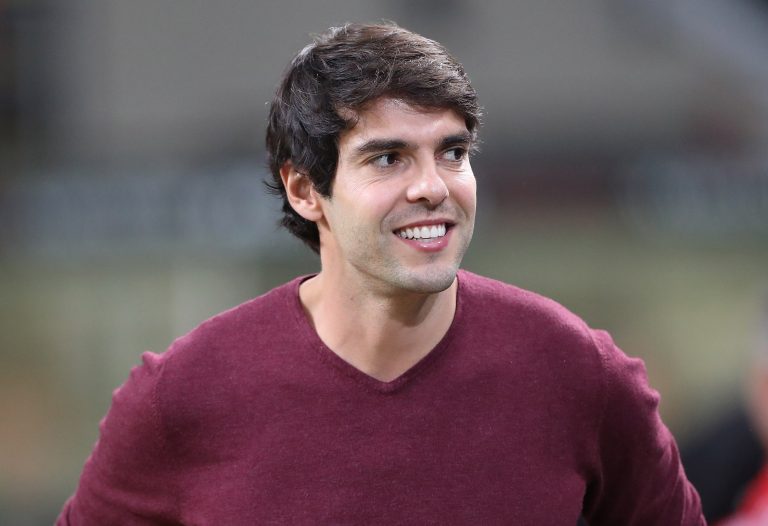Kaká, the famed footballer who hung up his boots in 2017, has been flirting with the idea of diving back into the football world, but this time, off the field. He shared in a chat with the Quinto Quarto website, a spark in his eyes, about his dream of either stepping into the shoes of a manager or, even more ambitiously, owning a football club himself. “That’s one of the things I think about. Having a team,” he mused, allowing a glimpse into his aspirations.
READ MORE
+ + Jesé includes Kaká, Casemiro, and Marcelo in his dream team
+ + Kaká celebrates São Paulo victory with his children
+ + Target of Brazilian clubs, Carlos Vinícius makes debut for Galatasaray with goal: ‘Special night’
He painted a picture of being at the heart of the action, not by scoring goals, but by weaving the very fabric of the team’s strategy and business decisions. “This way you end up participating a little more directly,” he explained, his passion evident.
He talked about enjoying the overarching role of general management, a field he’s keen to explore, though the right opportunity hasn’t knocked on his door yet. “I really like this idea of general management. It’s something I would like, but I haven’t found an opportunity in this sense yet,” he shared, a touch of longing in his voice.
Will Kaká join São Paulo?
When probed about the possibility of joining São Paulo, the club that carved his name into the history of Brazilian football and where he is revered, especially if it transitions to a Sociedade Anônima de Futebol (SAF), Kaká’s response was tinged with humor and admiration for the model. “Have you thought about it? I think the SAF is an interesting path for Brazilian football clubs,” he pondered aloud.
⭐️ Kaká ⭐️#VamosSãoPaulo 🇾🇪 pic.twitter.com/eCg4wIFg91
— São Paulo FC (@SaoPauloFC) December 16, 2023
He went on to highlight the benefits of this model, like diversifying revenue streams and, crucially, gaining more control over the club’s management. “The big advantage of the SAF…is that you can control management,” he pointed out, weighing his words.
He acknowledged that this doesn’t always guarantee success but emphasized the significant shift towards choosing management based on professionalism rather than political affiliation. “But the fact that you can choose professionals within a SAF, unlike the associative model, where they are often political positions and have other interests, I think it really is a big advantage for SAF,” he concluded, hopeful yet realistic about the future of Brazilian clubs adopting this model.



